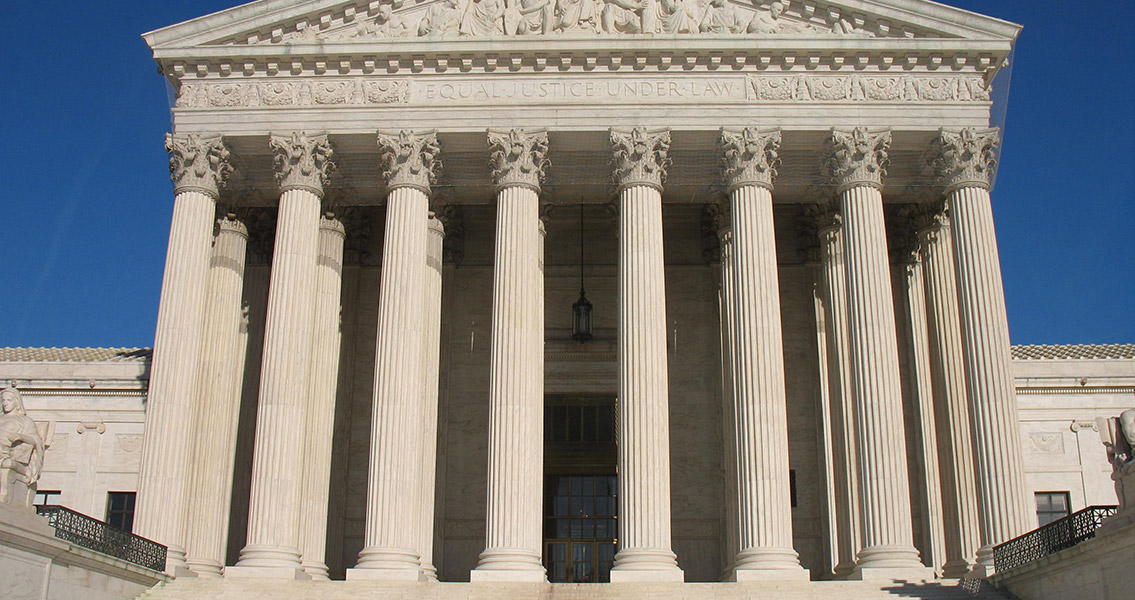<![CDATA[Twenty years ago a Supreme Court ruling against an amendment to the state constitution of Colorado struck a major victory for gay, lesbian and bisexual civil rights activists in the USA. The victory provided the first major constitutional precedent for fighting anti-homosexual legislation in the United States. As such, it was a vital step towards ensuring equal rights for the country's LGBT community. In November 1992, 53% of Colorado voters had approved an amendment to the state constitution which would specifically repeal any state or local law protecting people of 'Homosexual, Lesbian or Bisexual persuasion.' Labelled Amendment Two, the full text of the new law was explicit in its aims. "Neither the State of Colorado, through any of its branches or departments, nor any of its agencies, political subdivisions, municipalities or school districts, shall enact, adopt or enforce any statute, regulation, ordinance or policy whereby homosexual, lesbian, or bisexual orientation, conduct, practices or relationships shall constitute or otherwise be the basis of, or entitle any person or class of persons to have or claim any minority status, quota preferences, protected status or claim of discrimination. This Section of the [Colorado] Constitution shall be self-executing." As well as repealing existing laws, Amendment Two would have blocked any future laws designed to protect homosexuals, lesbians and bisexuals. Needless to say, it inspired a backlash in both Colorado and the wider USA. The origins of the amendment can be found in a reactionary swing in Colorado politics against progress made by civil rights activists. The campaigning of gay and lesbian groups won significant victories in the state in the 1970s. Several municipalities passed legislation prohibiting discrimination on the basis of race, gender or sexual orientation, while the state legislature had repealed the sodomy statute which made gay sexual activity a criminal offence. In the late 1980s, an influx of conservative evangelical Christians to the city of Colorado Springs rearranged the political landscape. Unhappy with the new freedoms offered to homosexuals, evangelical groups set about launching their own campaign, circulating petitions to have the new laws repealed. By 1992, their campaigning had succeeded in getting the issue on the ballot in the form of Amendment Two. Denver was a city whose anti-discrimination laws stood to be repealed by Amendment Two. City administrator Richard G. Evans sued state governor Roy Romer to get the amendment nullified on the basis it violated the Fourteenth Amendment's equal protection clause. Colorado's Supreme Court agreed with Evans that the new law was unconstitutional, a verdict the state court appealed, meaning the case of Romer v. Evans was brought to the US Supreme Court. In 1996 the Supreme Court heard Romer v. Evans, and scrutinised the legality of Amendment Two. By a vote of six to three Amendment Two was struck down for violating the Fourteenth Amendment to the US’ Constitution. Associate Justice Anthony M. Kennedy authored the Supreme Court’s ruling, released on 20th May, 1996: “Laws of the kind now before us raise the inevitable inference that the disadvantage imposed is born of animosity toward the class of persons affected.” For many, the Supreme Court’s verdict on Romer v. Evans was a crucial turning point in the campaign against prejudice based on sexual orientation. For the first time, the US Supreme Court had ruled that discrimination based on sexuality was just as unconstitutional as that based on race or gender.]]>
20 Years Since Anti-Homosexual Amendment Blocked in USA
